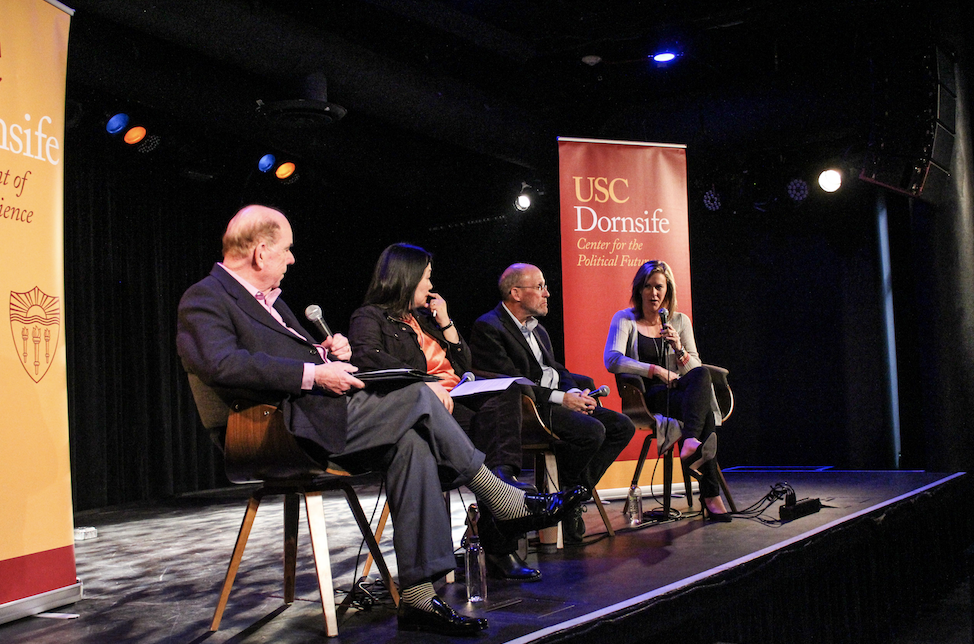Center for the Political Future hosts discussion on 2020 election

The Center for the Political Future hosted a discussion on Democrats who have announced their candidacy for the 2020 presidential election.
The panel, which was moderated by Center co-director Robert Shrum, included political consultant Stephanie Cutter, who served as deputy campaign manager for former President Barack Obama’s 2012 re-election campaign, Jane Junn, a political science and gender studies professor, and Adam Nagourney, Los Angeles Bureau Chief for The New York Times.
Nagourney said he is interested in seeing what type of candidate Democrats will vote for and how this could affect their chances of winning the election.
“The key question in this election is whether Democratic primary voters end up going [for] somebody who they think has the best chance of beating Donald Trump … or whether they’re going to go with their hearts and go for the person that … expresses how they feel,” Nagourney said.
The panelists also discussed how the Democratic National Convention may change its debate format in 2020 to accommodate the number of candidates by randomly splitting them up over multiple days as opposed to one.
“[Debates] are one tool through an electoral process through which voters get a lens of what these people are made of,” Cutler said.
Cutter said the number of Democratic candidates going into the 2020 election could be similar to the amount of candidates in the 2016 primary for Republicans. In order to win, Cutter said Democrats will have to gain voters’ attention.
“Trump completely mastered how to get attention in a very crowded field,” Cutter said. “The Republican primary at this point four years ago was just about as big [as the Democratic 2020 field].”
Panelists also mentioned how Trump’s re-election campaign will compel more liberal Democratic candidates to pull their platforms toward the political center, in an effort to appeal to moderate voters.
Nagourney said recent actions by prominent Democrats like Sen. Kamala Harris’ discussions on abolishing private insurance companies and Rep. Alexandria Ocasio-Cortez’s controversial Green New Deal could hurt Democrats’ chances of winning the presidency.
“Some [Democrats], and I would include Senator Harris in this, don’t have that much experience in running for president,” Nagourney said. “You make mistakes, and somebody like Trump, or anyone with some experience in this knows how to seize on mistakes.”
Panelists also commented on the role of identity politics in the election. Junn said the standard of white male leaders cannot be avoided on either side of the election.
“Whiteness and maleness has always been the standard by which we have come to see who is a legitimate political candidate, who is a leader, who is the person who should be the chief executive,” Junn said.
During the question and answer portion of the event, Savanna Mesch, a senior majoring in communication, inquired about how young people can stay engaged in the election without becoming apathetic.
Shrum said he believes young people are more likely to be involved in the 2020 election than in past elections.
“I think you’re going to see young people getting very involved in this campaign,” Shrum said. “I think their turnout is going to be pretty high in 2020; I think it’s going to be pretty high in the primaries.”
Mesch said she attended the panel to learn more about the role of young voters in the 2020 election.
“I’m also really interested in conversations about 2020,” she said. “I think the field is really crowded and with Bernie being so popular last time, I’m really interested to see how young people are going to digest this election as compared to last time.”

